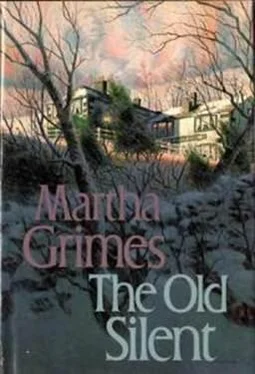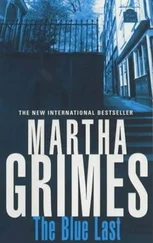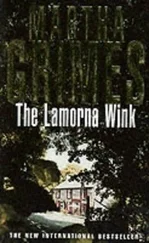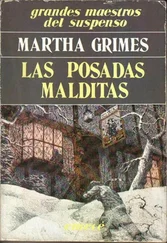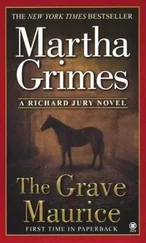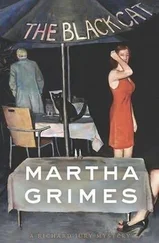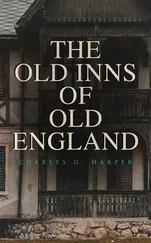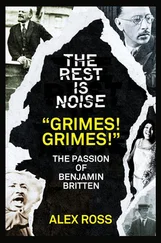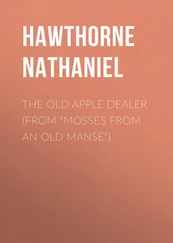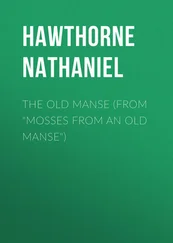Martha Grimes - The Old Silent
Здесь есть возможность читать онлайн «Martha Grimes - The Old Silent» весь текст электронной книги совершенно бесплатно (целиком полную версию без сокращений). В некоторых случаях можно слушать аудио, скачать через торрент в формате fb2 и присутствует краткое содержание. Жанр: Детектив, на английском языке. Описание произведения, (предисловие) а так же отзывы посетителей доступны на портале библиотеки ЛибКат.
- Название:The Old Silent
- Автор:
- Жанр:
- Год:неизвестен
- ISBN:нет данных
- Рейтинг книги:5 / 5. Голосов: 1
-
Избранное:Добавить в избранное
- Отзывы:
-
Ваша оценка:
- 100
- 1
- 2
- 3
- 4
- 5
The Old Silent: краткое содержание, описание и аннотация
Предлагаем к чтению аннотацию, описание, краткое содержание или предисловие (зависит от того, что написал сам автор книги «The Old Silent»). Если вы не нашли необходимую информацию о книге — напишите в комментариях, мы постараемся отыскать её.
The Old Silent — читать онлайн бесплатно полную книгу (весь текст) целиком
Ниже представлен текст книги, разбитый по страницам. Система сохранения места последней прочитанной страницы, позволяет с удобством читать онлайн бесплатно книгу «The Old Silent», без необходимости каждый раз заново искать на чём Вы остановились. Поставьте закладку, и сможете в любой момент перейти на страницу, на которой закончили чтение.
Интервал:
Закладка:
It was a fitting-enough landscape for such a medieval house, fifteenth, sixteenth century probably. Soot-blackened stone, vaulted porch, ranges of timber windows over archways, a turret at one end and a tower at the other. It was very large and looked very cold. Jury wouldn't have wanted to pay Citrine's heating bills. He wondered if it had been in the family forever; he knew the Citrine money had come from the woolen mills. Well, it was hardly Charles Citrine's fault that synthetics had come along.
The room into which Jury was led by a woman servant was not a great improvement over the stark medievalism of the facade. It had once been, he imagined, the "great hall," and still retained most of the size and much of the ambience of one. Its vaulted ceiling lent it a strangely cryptlike appearance. Near one end of the room was the large fireplace with a tile surround and copper hood, certainly not the original central hearth. Beyond this was a long entry screen, heavily curtained to cut off drafts and leading, probably, to buttery or dining room and kitchen. The walls were exposed stone sectioned off by wooden beams. Would he find the stone wept moisture if he touched it?
The furniture was heavy, dark Jacobean. Two baroque and elaborately carved chairs with high backs sat before the fireplace at opposite ends of a long claw-footed refectory table. There were other pieces, a sofa and several easy chairs. On the flagstone floor, oriental carpets were strewn, but their intricate and faded colors did little to add to any overall warmth and life. There were brass and pewter bowls set about full of flowers: mums and Christmas roses. They were sifting their petals onto the surfaces that held them, though, as if they, too, were giving over to the room's wintry look. That relieved this feudalism, but not greatly.
One thing that did relieve it, though, was an oriel chamber in the right wall, upraised and large enough to contain twin grand pianos. The high-climbing lancet windows that arched about this stagelike little room were beautiful.
There was music on one of the pianos. The cover of the keys was down over the other.
Unattended, the fire had burnt low. Why was the room not warmer, in tone if not in temperature? Against the other wall were floor-to-ceiling bookcases in recessed alcoves, and books usually made a room look tenanted, he thought. But these bookshelves seemed to have no arrangement, the books and magazines stacked or merely tossed there without any particular notice, like afterthoughts. Between the shelves was a window seat beneath a high window whose leaded panes should catch the morning sun. He walked over to it and found the view baleful, for it overlooked the downward slope of the moorland hill and the derelict farm, its longhouse, its barns studding the land like empty shells. The only life Jury saw was the black-faced sheep, raising their heads from the bracken.
Charles Citrine shambled into the room-that was the only way Jury could describe it, the sort of careless, shuffling walk the man affected, hands in pockets of baggy corduroy trousers, and wearing a checked woolen shirt beneath a mud-stained denim jacket. From a distance, he had the look of a man who'd been busy in the barn or mucking out a stable; up closer, Jury could see the lines of worry.
He did not extend his hand and looked at Jury with some suspicion. "Why are you here, Superintendent?"
"I thought I could help."
"I can't see how." This was said flatly, without hostility. "None of this makes any sense. Not Roger's death, not Nell's-oh, hell. You might as well sit down… Would you care for coffee?" Citrine sat back in the dark wood chair that had the look of some mythological beast or bird, the feet taloned, the slanted panels ribbed like wings.
Jury thanked him but shook his head. He would have expected more reserve from Charles Citrine, if not outright hostility toward himself, the person who had actually witnessed his daughter's crime. Nor did he seem to care anymore that Jury had, after all, no business being here. Given that Nell Citrine had made no move to get away, her own resolute silence regarding the circumstances, and her apparent acceptance of what she had done would have made an actual eyewitness to the crime hardly necessary. Her own refusal to deny anything would even have rendered circumstantial evidence unnecessary.
Thus Jury's own role was far less vital than it might have been. Perhaps Citrine realized this and that explained his attitude.
Citrine would have been, in any woman's book, a "catch." In his sixties he projected a vitality, a lustiness, even, missing in men half his age. The earthiness born of the land and the casual air he affected born of his work there (though Jury imagined it was more a gentlemanly meddling into the duties of his laborers) were only enhanced by a veneer of sophistication that had come from handling many types of people. In spite of the tensions of the last few days, he had the manner of one almost untouched by the larger world beyond his doorstep. This blend of sophistication, ease, and innocence could be a potent mixture for any woman. Jury wondered if Mavis Crewes had imbibed it. He couldn't imagine the two of them together; Citrine was far more refined and a great deal cleverer.
This room did not encourage ease of manner. Yet Citrine seemed at ease in it-how could a man look comfortable in that Jacobean monstrosity of a chair?-and yet at odds with it, too. The room, the feudal, armorial look of the house, seemed less Citrine's proper milieu than would some South Sea island. His face was weather-burned from whatever farming life he led, and the sunburnt look lent a further crispness to the gray hair shot through with gold and a further depth to the eyes, which had the clear tint of unruffled water in some island cove. Roll up his trouser legs and shuck his shoes, and he could be a beachcomber, a Crusoe happily marooned.
His whole placid presence rubbed Jury's nerves raw.
"Isn't this somewhat irregular, Superintendent? I mean, given you must be the Crown's witness?" The question was more curious than critical, as he regarded Jury with those calm, aquamarine eyes.
"I wouldn't serve as witness, since there's no question of the right person's being arrested."
He looked surprised. "I find that odd. You were the one who saw Nell-who saw it happen." Citrine looked down at the burnt logs, little more than embers.
"Everything I know I told to the West Yorkshire police. Superintendent Sanderson." Not everything. There was really no way to tell it. She went to the parsonage, a tearoom, a child's museum. But how to explain the nuances: the abstracted air, the hand against the glass case of the toy train. And what, precisely, could he say Roger Healey had said or done to provoke such a tragic outcome? Jury had his impressions, that was all. Attitude, aura, evanescence. Sanderson would tell him, with his dry look, that perhaps the Old Silent's black cat was a familiar? To put away his crystal ball.
"There was the appearance," Jury went on, "of an argument. Of a rather serious disagreement."
Citrine had removed a pipe from his jacket pocket, knocked out the old tobacco into an ashtray, and tamped down fresh. He lit up. A fruity-scenting smoke blossomed, uncurled, and dissipated into the cold air. "Given the outcome, I'd say that was probably true," Citrine said dryly and jammed the pipe back in his mouth.
Jury knew he was being deliberately misunderstood. He said nothing.
"I have no idea why this happened. Roger was a devoted husband, a fine man. Spent a lot of time in London, of course, because of his work. And I imagine nothing was quite the same since-" He stopped abruptly.
"If you're talking about your grandson, I know about that. I'm very sorry, Mr. Citrine. I truly am. I'd simply like to know the reason this happened." He tried to smile. "Throw me out any time you feel like it."
Читать дальшеИнтервал:
Закладка:
Похожие книги на «The Old Silent»
Представляем Вашему вниманию похожие книги на «The Old Silent» списком для выбора. Мы отобрали схожую по названию и смыслу литературу в надежде предоставить читателям больше вариантов отыскать новые, интересные, ещё непрочитанные произведения.
Обсуждение, отзывы о книге «The Old Silent» и просто собственные мнения читателей. Оставьте ваши комментарии, напишите, что Вы думаете о произведении, его смысле или главных героях. Укажите что конкретно понравилось, а что нет, и почему Вы так считаете.
